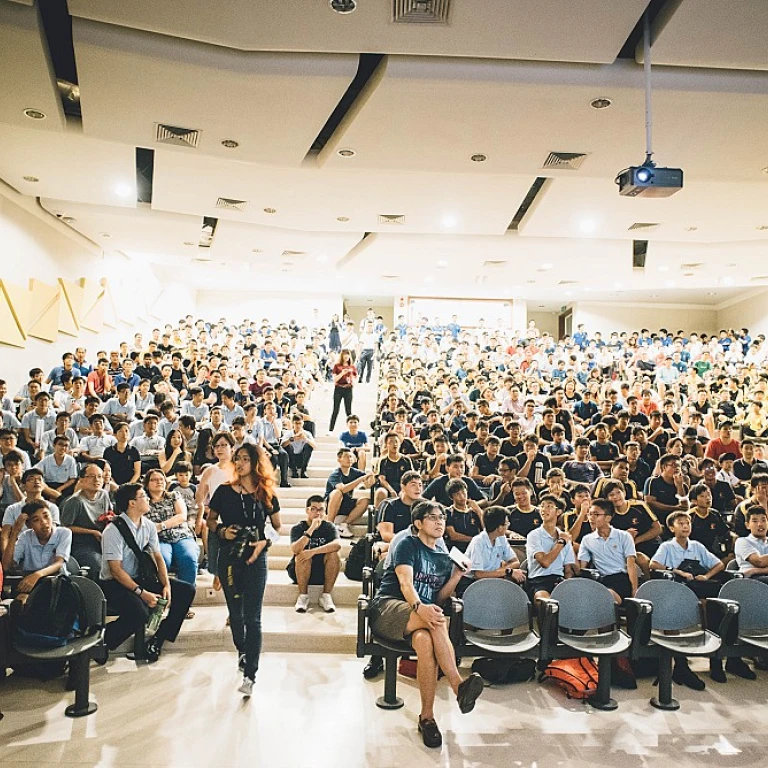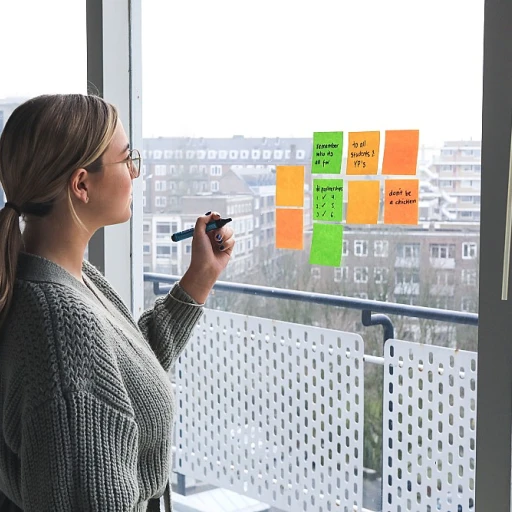
Understanding the Role of a Metadata Engineer
When preparing for a metadata engineer interview, it's crucial to first understand the role itself. A metadata engineer is responsible for designing and maintaining the systems that manage and store meta data. These engineers play a pivotal role in facilitating data engineering processes, ensuring seamless data integration and high-quality outputs.
Defining the Key Responsibilities
A fundamental aspect of becoming a proficient metadata engineer involves understanding data modeling and data pipeline architectures. Your expertise will be called upon to create and manage robust data pipelines, which include tasks such as data extraction, transformation, and loading (ETL). Additionally, there's a strong emphasis on maintaining data efficiency and accessibility for various functions like data science and data analysis.
Your role will often require collaboration with data scientists and data engineers, necessitating proficiency in coding languages such as Python and SQL. These skills aren't just helpful; they’re essential for developing scripts and queries that improve data handling processes.
The Significance of Product Sense and Problem Solving
As a metadata engineer, your understanding of product sense is vital. It's not only about managing data; it's about ensuring that your data management aligns with product goals and enhances user experience. Employers will evaluate your problem-solving skills through intricate coding and product-related interview questions, so prepare to demonstrate these competencies effectively.
To thrive in an interview, you’ll also need to comprehend the comprehensive software development life cycle, from requirements gathering to deploying finished products. Showcasing your ability to adapt within these processes can position you as an asset to any data-driven team.
Moreover, consider enhancing your learning journey by developing a self-monitoring checklist. This can help you track your progress in understanding the metadata engineer's responsibilities, along with refining your skills in preparation for specific interview questions.
Key Python Concepts for Metadata Engineers
Essential Python Knowledge for Metadata Engineers
To excel in a metadata engineer interview, candidates must possess a strong understanding of Python concepts, especially as they pertain to data engineering and handling meta data. Below are key areas to focus on during preparation:- Data Structures and Types: Proficiency in Python data structures such as lists, dictionaries, sets, and tuples is crucial. Metadata engineers often handle data in various forms, and quick decision-making may hinge on the optimal structure selection. Knowing when to use each type can enhance the efficiency of managing metadata during the engineering process.
- Functions and Object-Oriented Programming: Being able to write functions in Python and understanding the principles of object-oriented programming (OOP) are invaluable. These skills allow metadata engineers to encapsulate processes, promoting reusability and efficient data handling. During interviews, you may be asked to demonstrate your ability to write clean, maintainable code using functions and classes.
- Data Handling and Transformation: Familiarity with libraries such as Pandas and NumPy is essential, as they offer powerful tools for data manipulation and transformation. Whether you're building a data pipeline or conducting data modeling, these libraries will be indispensable in your toolbox.
- SQL Integration: Many interviews will gauge your ability to interface Python with SQL databases. Understanding how to write SQL queries from Python or leverage SQLAlchemy for ORM (Object Relational Mapping) can be a differentiator. This skill demonstrates a strong link between Python and database technologies, which is pivotal in metadata management.
- Problem Solving Skills: The ability to dissect complex problems and devise systematic solutions is critical. Example questions in an engineer interview might involve debugging a Python script, optimizing code for performance, or crafting algorithms that align with product requirements.
Common Python Interview Questions
Common Questions You May Encounter
In a metadata engineer interview, you can expect a diverse range of questions focusing on your Python skills and how they can be applied to the domain of data engineering. Here are some typical categories and examples.- Understanding Python's Key Libraries and Functions: Interviewers may assess your familiarity with essential Python libraries pertinent to data engineering. Expect questions like, "How do you use Pandas for data manipulation?" or "Can you explain the differences between NumPy arrays and Python lists."
- Data Structures and Algorithms: Assessing your problem-solving capabilities is a priority. You might be asked, "How would you implement a queue using a Python list?" or "Describe a use case for using a dictionary in Python." These questions explore your knowledge and ability to utilize data structures effectively.
- Coding and Logic: Prepare to write functions on the spot, addressing practical scenarios such as, "Write a function to reverse a linked list" or "Implement a Python function to check if a string is a palindrome." These exercises test your coding proficiency and logical thinking.
- SQL and Data Manipulation: Given the metadata engineer's often close work with SQL and databases, questions may cross into SQL territory. An example question could be "How do you join tables in SQL, and how does this concept translate to handling data in Python?"
- Understanding Data Pipelines: Since data engineers work extensively with data pipelines, you might be queried on how you would construct a pipeline process using Python. An example could be, "Describe how you would handle data ingestion in a Python-based pipeline."
Practical Python Exercises
Hands-On Practice with Python
To truly shine in a metadata engineer interview, practical Python exercises can make all the difference. The ability to demonstrate proficiency through coding tasks is often a crucial part of the interview process. Below are some practical approaches and examples to enhance your skillset:- Write Functions for Data Engineering: Practice creating functions that handle typical data engineering tasks. For example, write a function that reads data from a file, processes it to extract metadata, and outputs a cleaned dataset. This will improve your understanding of data pipelines and the data modeling process.
- Utilize Example Questions: Work on coding exercises that reflect real-world scenarios you might face in an engineer interview. Websites and coding platforms often provide challenges related to data structures and algorithms. Focus on writing efficient, clean code that you can explain clearly during interviews.
- Engage in Mock Interviews: Participate in mock interviews to simulate real coding interviews. This practice can help you develop product sense, improve your problem-solving skills, and prepare you for the types of questions you will encounter. Understanding the nuances of interview questions meta will boost your confidence.
- SQL Interview Preparation: Python often works hand-in-hand with SQL in data engineering roles. Practice writing queries to retrieve and manipulate data. Understanding how Python and SQL interact within a data pipeline is essential for the role of a data engineer.
Continuous Learning Strategies for Python Mastery
Strategies to Enhance Your Python Proficiency
To excel as a metadata engineer, continuous learning is essential, especially when it comes to Python proficiency. With evolving data engineering practices and interview questions constantly adapting to current industry standards, here are some effective strategies to elevate your Python coding skills:- Consistent Practice: Regularly engage in solving Python problems to enhance your coding abilities. Utilize platforms offering coding challenges focused on data engineering to simulate real interview questions.
- Mock Interviews: Participate in mock interviews with industry professionals or peers. This practice not only helps in rehearsing potential interview questions but also boosts confidence during the actual interview process.
- Collaborate with Peers: Work with other data engineers or join Python coding groups. Collaboration can lead to learning different problem-solving approaches, which is crucial for data modeling and data pipeline development.
- Analyze Data Structures: Deepen your understanding of data structures by exploring their application in Python. Understanding how to efficiently write functions that manage data effectively can be pivotal in an interview setting.
- SQL Skills Integration: Python and SQL often go hand in hand in managing and querying metadata and data products. Improving your SQL interview skills alongside Python ensures you are well-rounded to handle various questions in an engineering interview.
- Continuous Learning Resources: While we emphasize Python, exploring other programming aspects like data science techniques and coding exercises can generate new insights into process optimization for metadata management.
Resources for Further Learning
Enhancing Python Proficiency with the Right Resources
Becoming proficient in Python, especially for a metadata engineer role, involves continuous exposure to new concepts and hands-on practice. Thankfully, the resources available today cater to both beginners and seasoned professionals aiming to refine their skills. Here's a curated list to help you navigate through your learning journey:
- Online Courses: Platforms like Coursera, edX, and Udemy offer specialized courses on Python tailored for data engineering and metadata work. These courses often cover coding exercises and practical implementations key to the role.
- Books: Texts such as "Python Crash Course" and "Fluent Python" provide foundational and advanced insights, focusing on writing functions, understanding data structures, and the nuances of data modeling.
- Practice Problems: Websites like LeetCode and HackerRank offer problem-solving questions focusing on SQL and Python, perfect for interview preparation and improving coding skills.
- Data Engineering Resources: Sites dedicated to data engineering, such as DataCamp, provide tutorials on data pipelines and data models, which are crucial components of the metadata engineer's skill set.
- Mock Interviews: Engaging in mock interviews through platforms like Pramp can help simulate the real interview process, enhance your product sense, and build confidence in your answers.
- Community Forums: Participating in communities like Stack Overflow and Reddit's r/learnpython gives you access to discussions and advice from peer data engineers and data scientists who have faced similar challenges.
Investing time in these resources can considerably enhance your preparation, improve your skills, and ensure you're ready for any interview questions that come your way. Remember, the key isn't just to learn but to continuously apply and adapt your knowledge to real-world scenarios.













